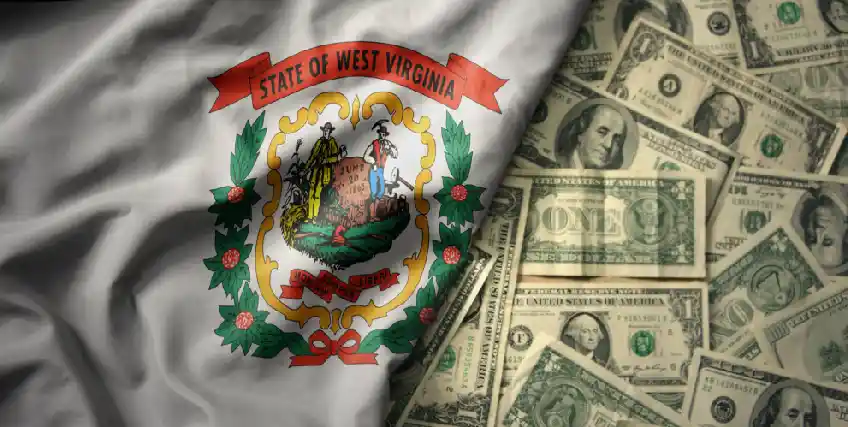Business Loans in Virginia Made Simple
Empowering Virginia entrepreneurs with fast and flexible financing options.
Why Choose Biz2Credit for Business Loans in Virginia
Virginia’s thriving economy is home to businesses across diverse industries, from technology in Northern Virginia to hospitality in Virginia Beach. Biz2Credit understands the unique needs of small business owners in the state and offers personalized financing solutions to help them succeed. Whether you need a business loan in Virginia to upgrade equipment or invest in growth, our fast and efficient application process ensures you get the funding you need without delays.
With over 250,000 businesses served nationwide, Biz2Credit provides support through tailored funding options, quick approvals, and expert funding specialists. Our goal is to simplify financing so you can focus on growing your business and reaching new milestones.
Our Strengths:

Simplicity

Specialists

Credit Score
Drive Your Business Forward with Business Loans in Virginia

Explore Small Business Financing Options in Virginia
A term loan provides a lump sum of capital, repaid over a set period with fixed installments. It can be used to meet a wide variety of business needs, such as expanding business operations, upgrading equipment, managing cash flow, stocking inventory and even funding marketing campaigns or new projects. With this type of small business loan in Virginia, you can get upfront funding and boost your business finances too.
But keep in mind, the repayment commitment requires steady cash flow to meet your obligations. If you have a credit score of below 650 or limited time in business, it may affect your chance of loan approval. In some cases, you may be required to secure your loan with collateral and/or a personal guarantee.
- Fund range: $25K-$1M
- Qualification: Qualify automaticallyⓘ after you submit your application
- Credit Score: 650
- Repayment Term: 12-36 months
Revenue-based financing in Virginia is a powerful alternative for small business owners in Virginia who need flexible funding options without the rigid terms of traditional loans. Tailored for businesses with variable revenue streams, this financing solution allows you to secure up to $2 million and above in financing. Your payment amount is calculated based on a percentage of estimated future receivables. This makes it an ideal option for industries like retail and hospitality, which often experience income fluctuations.
For entrepreneurs seeking small business financing in Virginia, revenue-based financing provides quick access to capital to cover essential needs such as purchasing inventory, upgrading equipment, or expanding operations. With minimal requirements and a streamlined application process, businesses in the state of Virginia's funding ecosystem can secure funding without lengthy approval timelines.
Biz2Credit stands out among other financial platforms in Virginia by offering speed, flexibility, and solutions that grow with your business. Whether you’ve been in business for just a few years or are an established enterprise, revenue-based financing is designed to empower your goals and help you succeed in a competitive market. Explore how this option can work for your business needs as an alternative to other commercial loan products in Virginia tailored to your growth aspirations.
- Fund range: $25K-$2M
- Qualification: Create your Biz2Credit account to prequalify.
- Credit Score: 600+
- Repayment Term: Flexible, based on your revenue
Our commercial real estate loans in Virginia are designed to empower small business owners in Virginia to expand or invest in property with confidence. Whether you’re looking to purchase a new location, renovate existing facilities, or refinance existing real estate debt, these loans offer the flexibility and capital you need. With funding amounts ranging from $250,000 to $6 million, businesses across Virginia can access tailored solutions to meet their specific goals.
For those exploring commercial loans in Virginia, Biz2Credit provides competitive interest rates, streamlined approvals, and repayment terms ranging from 12 to 36 months. This makes it easier for entrepreneurs to secure funding for high-value assets without the stress of lengthy application processes. As a trusted name in the industry, Biz2Credit ensures a seamless experience from application to disbursement.
From small businesses in Norfolk to midsized businesses in Alexandria, Biz2Credit’s solutions are an ideal choice for those seeking small business loans in Virginia that cater specifically to cash out refinance or bridge financing needs. By providing quick approvals and flexible repayment options, Biz2Credit helps businesses navigate the complexities of the state of Virginia's business loans ecosystem while securing the property assets they need to grow. Discover how these commercial real estate loans in Virginia can drive your business forward.
- Fund range: $250K-$6M
- Qualification: Submit your application for review
- Credit Score: 650+
- Repayment Term: 12-36 months
Industry-Based Business Loans in Virginia
in Virginia
in Virginia
in Virginia
in Virginia
in Virginia
in Virginia
in Virginia
How to Apply for Small Business Loans in Virginia
Simple steps to secure business loans in Virginia with Biz2Credit.

Small Business Loans in Virginia Articles
Industry-Specific Small Business Grants in Virginia: Agriculture, Tech, and Retail
Virginia is a prime location for businesses of all varieties. It was chosen as the 2024 State of the Year for its business-friendly environment
A Complete Guide to Grants in Virginia for Small Businesses
Virginia, known for its historic towns, cities, rich culture and birthplace to numbers of American pioneers stands out as one of the best states in the U.S. for entrepreneurs.
How to Start a Business in Virginia
Starting a business is an exciting venture, but choosing the right location can impact the outcome of your venture.
Before You Grab the Shears, Check the Price! The Cost to Open a Hair Salon in Virginia
The constant rise in beauty trends is attracting more and more people into the salon business these days.
Power of Connections: Why Networking Matters for Virginia Small Businesses
Small businesses are an integral part of the economic landscape. They help create and maintain jobs for employees while enhancing the community they operate in
FAQs on Business Loans in Virginia
What types of business loans are available in Virginia?
Virginia business owners can access a variety of financing solutions designed to meet their unique needs. Biz2Credit offers options such as business loans in Virginia for managing cash flow, restaurant equipment loans in Virginia for upgrading kitchens, and commercial real estate loans in VA for purchasing or renovating properties. Industry-specific financing options, like loans for attorneys in Virginia and business loans for salons in Virginia, are also available. These loans can be used to expand operations, invest in new equipment, or address seasonal challenges, providing the flexibility Virginia entrepreneurs need to thrive in today’s competitive market.
How do I qualify for a business loan in Virginia?
To qualify for a business loan in Virginia, lenders typically evaluate your business’s operational history, financial stability, and revenue trends. A clear business plan demonstrating how the funds will be used can improve your chances. Biz2Credit simplifies this process by assessing your specific needs and matching you with the right loan. Whether you’re seeking small business loans for women in Virginia or financing for a pharmacy, our platform ensures a quick and hassle-free application. With flexible eligibility criteria, even businesses facing challenges can explore options like equipment financing or industry-specific loans to secure the funding they need.
Are there financing options for women entrepreneurs in Virginia?
Biz2Credit supports women entrepreneurs in Virginia with tailored solutions such as small business loans for women in Virginia. These loans cater to the specific needs of women-led businesses, providing funds for expansions, inventory purchases, or equipment upgrades. Whether you’re running a beauty salon, a retail store, or a professional practice, our business loans in Virginia ensure quick access to capital. With flexible terms and a streamlined application process, Biz2Credit empowers women entrepreneurs to overcome financial barriers and focus on growing their businesses across the state.
Frequent searches leading to this page
Term Loans are made by Itria Ventures LLC or Cross River Bank, Member FDIC. This is not a deposit product. California residents: Itria Ventures LLC is licensed by the Department of Financial Protection and Innovation. Loans are made or arranged pursuant to California Financing Law License # 60DBO-35839





